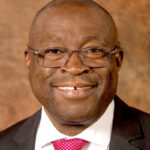President Cyril Ramaphosa will not face an impeachment inquiry following a vote on the Section 89 Panel Report in the National Assembly on Tuesday.
A majority of Members of Parliament, 214, voted for the report to be rejected and for Parliament not to proceed with the process.
The vote follows a report by the Section 89 independent panel, led by retired Chief Justice Sandile Ngcobo, which found that the President may have violated sections 96(2)(a) of the Constitution and Section 34(1) of the Prevention and Combating of Corrupt Activities (PRECCA) Act in relation to a robbery at his Phala Phala game farm in 2020.
President Ramaphosa has denied that he violated his oath of office in this regard and has applied for a review of the report through direct access to the Constitutional Court.
Today’s National Assembly meeting was fully physical, with no provision for virtual participation.
Presiding over a debate on the matter and then the vote by means of an open ballot and a roll call, National Assembly Speaker Nosiviwe Mapisa-Nqakula announced the results.
“The question before the House is that the Section 89(1) inquiry be proceeded with and the matter being referred to the impeachment committee.
“Those who have voted yes, 148 [votes], those who have voted no, 214 [and] abstentions, 2. Therefore the section 89 (1) inquiry will therefore not be proceeded with,” she said.
Before the vote and the debate proceeded, a request was made by some Members of Parliament to hold the vote via a secret ballot.
“I have considered the request for a vote by secret ballot and have communicated my decisions and the reasons for my decision in this regard.
“It is sufficient to reiterate that a parliamentary environment is always a highly politicised space and can never be entirely free of political tensions either between or even within parties.
“I do not believe that the atmosphere is so toxified or so highly charged that members of the assembly would be prevented from exercising their vote on this question in accordance with their conscience using an open voting procedure,” Mapisa-Nqakula said.
The Speaker had already denied a request for a secret ballot twice – one made last week and the other yesterday afternoon.
“I further wish to reiterate that an open and transparent procedure, followed by the assembly to exercise this important decision on the section 89 independent panel report can only bring about public trust and confidence in the National Assembly and our democratic dispensation.
“I therefore stand by my decision to decline the request for a vote by secret,” she said.
She also denied a request to have the vote postponed on the basis of the President’s review application.
“A motion for the postponement or discharge of an order of the day…should have been done right at the beginning of the proceedings. As you did not move this motion prior to us debating the order, it can only be assumed that your proposal was in fact intended not as a postponement motion but an amendment to the question that has now been put. This amendment is equally out of order in terms of rule 121.
“Your proposed resolution, however, asks for the House to decide on two substantive matters…as resolution to postpone the matter and at the same time another resolution to proceed to an inquiry contingent on a future as yet uncertain outcomes of a process that is outside the ambit of the National Assembly. The Assembly cannot relinquish its own mandated responsibility in this manner,” she said.
During the vote, each member’s name was called out by the house secretariat and the member voted either “yes”, “no” or “abstain”.












